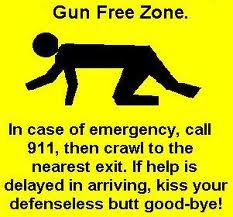The Supreme Court of the United States today struck down a California law banning the sale of violent video games to minors. Justice Antonin Scalia wrote the opinion for the 7-2 majority, with Justices Breyer and Thomas dissenting.
One can just see the headline now: “Supreme Court Determines Violent Video Games Are Great for Kids!” Or, “Justice Scalia’s Children Must Be Embarrassed by His Utter Disregard for Parents’ Rights.”
Superficially, this appears to be a failure of government to support parents in their quest to protect children. Shouldn’t we applaud governmental restrictions on games that depict violent rape, dismemberment, and sickeningly graphic murder? Shouldn’t the Supreme Court want to help parents protect their children from this satanic drivel?
Well, not really. Scalia wrote that the gaming industry already does assist parents in this regard by providing useful rating systems for games–a system that experts consider far superior to our current movie rating system. The Court argued that states cannot create laws to deny children access to objectionable material.
The justices admitted that some of these games aren’t just objectionable, but horrific. Scalia hinted at the utter depravity of many of the current games (Justice Alito endured the task of researching just how bad these games are; our nation owes him a collective floral arrangement and “Thank You” card). No one needs to convince us of the abased nature of these games. We think they are shameful at best and neither of us would allow these games in our homes.
The majority ruled, however, that the evidence that violent video games cause future violence is weak and merely correlational. No direct cause has ever been established. Furthermore, any causal relationship was admittedly slim at best–having about the same effect as comic books and Saturday morning cartoons (remember Tom and Jerry?). If the government can’t restrict those, how could it restrict video games?
Government, in the end, has no compelling interest in forcing limits on children’s access to violent video games. This is, and always has been, the sole responsibility of parents. Government has no right to infringe on parents’ ability to monitor or achieve reasonable control over their children. If the government took that responsibility from parents, one could see how the family structure would be degraded.
In fact, the majority entertained the slippery slope of restricting minors’ access to certain material. If the government can restrict one type of objectionable material, it can object to other types of objectionable material based on non-compelling interests and evidence. For example, imagine the government restricting the dissemination of religious tracts because some pseudoscientific study suggests the activity tends to breed contentiousness and even violent behavior.
The question is, will parents take the bait and exercise the control that was rightly theirs all along? Government has parented all of us for so long that many parents might think, “if it isn’t illegal, it must be okay for my kids, or the government would have banned it.” This is the problem with the encroaching nanny state. We have gradually become accustomed to government deciding our safety for us–from helmets to seat belts. We want to believe that if it is dangerous, big daddy government will protect us.
This decision effectively slows down the reach of the nanny state. For this, we are thankful. It also reinforces our united belief that parents are the ultimate arbiters of what is best for their children and are the final human authority in a child’s life. This awesome responsibility rests on our shoulders, which should force us to redouble our own efforts and help equip all parents to take up that mantle of authority for their good and for the good of their children.
Co-authored with BigGovernment contributor Dr. Gina Loudon.


COMMENTS
Please let us know if you're having issues with commenting.